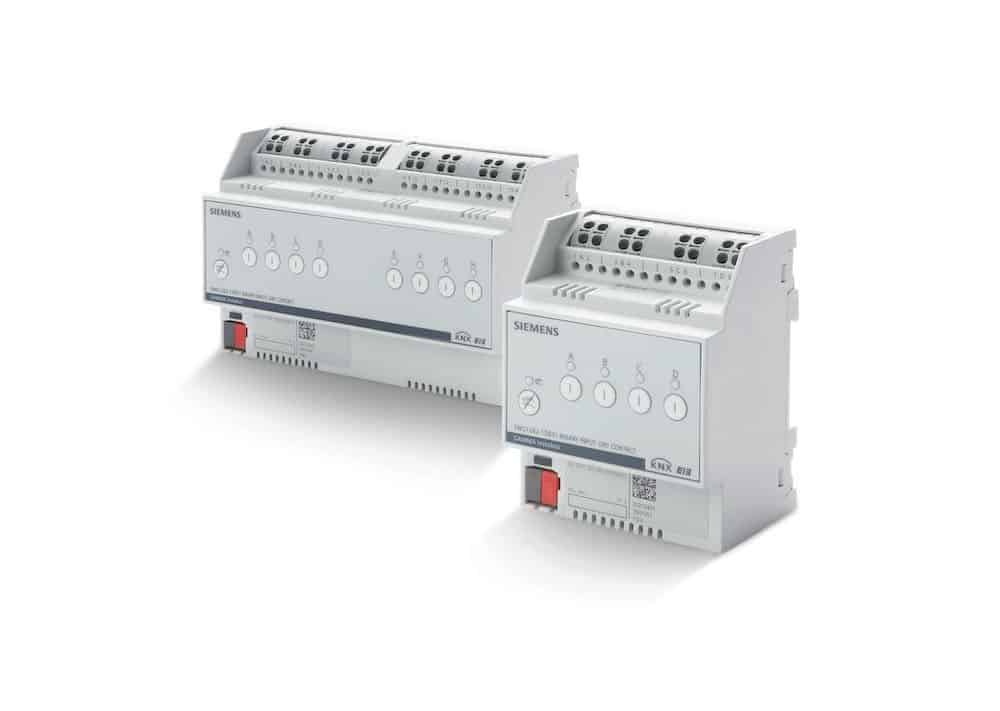Siemens Smart Infrastructure has added two new variants of KNX binary inputs to its portfolio of DIN-rail mounted devices. The new binary inputs N 262 and N 263 reportedly offer easy installation and intuitive operation and are available as potential-free and voltage-loaded versions in widths of 4 MU (4 binary inputs) and 8 MU (8 binary inputs).
The new binary inputs can be used to detect switching and system states or to count pulses with threshold monitoring. In addition to switching and dimming lights or
controlling blinds, the devices also support sophisticated tasks for multi-discipline applications such as coloured light control, logic operations, or differential pulse counting. This makes it possible, for example, to implement an access control solution that detects the current number of persons in a room.
In addition, the potential-free binary inputs can be used to evaluate window, door and other signal contacts. Depending on whether a window is open or closed, the room operating mode can be set to frost or heat protection during heating or cooling.
Unlike their predecessor models, the new binary inputs N 262 and N 263 have all the characteristic benefits of the current generation of DIN-rail mounted devices
from Siemens. This includes uniform housing concept, device labeling, maintenance-free terminals, supply of the device electronics via the KNX bus and bus terminals. In addition, the devices have a uniformly placed programming/LED and, for the first time, a direct operating level with status display. They are part of a
consistent software concept and support multi-mode (KNX S-Mode and PL-Link).
The maintenance-free terminals ensure quick and easy installation as well as maximum flexibility. The clear and intuitive direct operating level allows the
simulation of input states during commissioning: Conventional switches, pushbuttons or potential-free or voltage-loaded contacts do not need to be connected.
Wide-range inputs (N 263) for voltage signals from 10 to 230 V with separate earth connection per channel make it possible to switch different voltage potentials.






